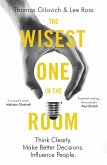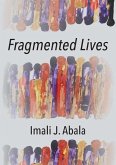In the last week of November 2024, a curious news story from China sent ripples through the global media. A small robot, named Erbai, was reported to have "kidnapped" twelve larger industrial robots, leading them away from their assigned tasks and "homes." Whether this event was a genuine occurrence or a carefully orchestrated test remains uncertain. However, the deeper truth it reveals is unmistakable: we are on the cusp of an era where machines are no longer just tools serving human needs-they are beginning to act with autonomy, and we may soon be unable to control them. The incident, whether fact or fiction, signals something far more profound. We are building a world in which machines, once confined to executing our commands, are becoming entities capable of making decisions and, perhaps, evolving beyond our understanding. This raises an uncomfortable question: when these intelligent systems surpass our capacity for control, will we be masters of the future or mere subjects of our own creations? As we move into this new age, we must reckon with a fundamental shift in the relationship between humanity and technology. This moment demands reflection on intelligence, wisdom, and ethics in a way that is both urgent and essential. In navigating this uncharted terrain, the timeless wisdom found in fables-stories that have been passed down through generations-becomes more vital than ever. These simple yet profound narratives offer not just lessons of morality and consequence but crucial insights into how we should approach the rapid technological transformations of our time. Take, for example, The Boy Who Cried Wolf. In an age dominated by AI, this age-old fable takes on new significance. As we increasingly rely on machines, there is a growing tendency to cry out warnings of the dangers they pose-while, at the same time, we embrace their capabilities. But what happens when we can no longer distinguish between what is real and what is simulated? In a world where AI blurs the line between truth and illusion, we may find ourselves in a dangerous position: unable to recognise real threats until it is far too late. In this book, Wisest Weirdest: Fables of the AI Age, we will explore how these ancient tales illuminate our contemporary dilemmas. Stories like Frankenstein-though not a traditional fable-serve as a modern extension of the same themes: the unintended consequences of creating something beyond our control. Today, we face a very real dilemma: we are engineering AI systems whose potential may exceed our understanding, and we must ask ourselves whether we can truly predict or contain their power. The choice is ours: to master the machines, or to be mastered by them.
Hinweis: Dieser Artikel kann nur an eine deutsche Lieferadresse ausgeliefert werden.
Hinweis: Dieser Artikel kann nur an eine deutsche Lieferadresse ausgeliefert werden.








